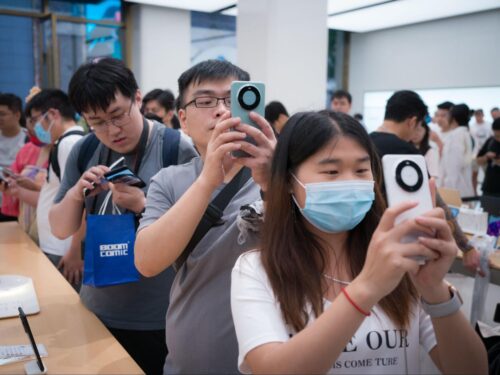U.K. opens narrow door to Huawei 5G
The British government labelled Huawei a "high-risk vendor," but allowed it to sell its 5G equipment for non-core parts of U.K. telecoms networks.

Boris Johnson appears to have averted a full-blown confrontation with the White House over Huawei, after the government designated the Chinese technology firm a “high-risk vendor” and imposed a cap on its involvement in building the UK’s 5G telecoms network…
Sources said that while the U.S. remained disappointed with the decision to allow “an untrusted vendor” into the UK market, the security and economic relationship between the two countries was too important to jeopardize in a row over mobile phone technology.
Of course, 5G is much more than a simple upgrade to mobile phone technology, and is supposed to enable a whole new “internet of things” economy to develop over time. This will integrate autonomous vehicles, smart factories and farms, virtual reality, and of course the ability to download entire movies to your smartphone in mere seconds from any location — leading to major economic implications.
The political implications are perhaps even more important, and go beyond the U.S.-U.K. relationship, as the Eurasia Group’s Paul Triolo writes on The China Project:
For Huawei, the decision is a mixed bag, which will raise the costs of compliance, and circumscribe the firm’s role in the rollout of 5G networks in a major European market. The decision is also likely to reverberate throughout European Union member states, and influence the current heated debate about Huawei that’s underway in Germany, which has even seen Chancellor Angela Merkel’s own party push for a harder line on Chinese vendors. The European Commission will also release this week a “tool kit” for member states to use in deciding which vendors to allow into their national supply chains, after putting together an EU-wide and coordinated risk assessment of 5G security late last year…
U.S. officials with the administration and Congress have already expressed concern over the decision — they are not happy that the action falls short of an outright ban. But it is unlikely that the U.S. will go as far as to curtail or throttle intelligence sharing between the two close allies, as U.S. officials such as Secretary of State Pompeo have threatened over the past year. In addition, it is unlikely that the U.S. would risk breaking up the Five Eyes intelligence partnership over this issue — another key member, Canada, has still not made a final decision on whether to ban Huawei, while Australia and New Zealand have in place legal and other processes that add up to a de facto ban…
U.S. efforts to encourage like-minded states to ban Huawei will continue, with the battleground now shifting to key and large developing country markets such as India and Brazil. India has allowed Huawei to participate in pilot deployments of 5G networks, but has not made a final decision on a ban, or how to adopt restrictions along the lines of the U.K. Brazil is not likely to ban Huawei, but could draw from the U.K. model to try to limit where carriers can deploy the firm’s equipment.
Triolo explains the overall technical approach of the U.K.’s decision this way:
The U.K. approach to Huawei has some similarities to the French system, as the firm’s telecom gear will not be allowed in the core portions of carriers’ networks, and will also be restricted in some sensitive geographical areas. U.K. carriers will also not be allowed to depend on a single vendor’s equipment for more than 35 percent of their overall needs. Hence, the U.K.’s complicated 5G security framework represents not a full ban on any particular vendor, but at the same time also does not provide carriers with free rein to use high-risk vendor equipment wherever they would prefer in deploying 5G network infrastructure.
Hosuk Lee-Makiyama, the director of the European Centre for International Political Economy, says the decision is “not a win [for China] by any measure — it’s damage control.”
For more information on the U.K.’s Huawei decision, see these stories:
- NCSC advice on the use of equipment from high risk vendors in UK telecoms networks / National Cyber Security Centre
- The future of telecoms in the UK / National Cyber Security Centre
- U.K. allows Huawei to build parts of 5G network, defying Trump / WSJ (paywall)
- Britain defies Trump plea to ban Huawei from 5G network / NYT (porous paywall)
- Commentary: Huawei decision is a sensible compromise but could still anger US / by Dan Sabbagh in The Guardian
—Lucas Niewenhuis






